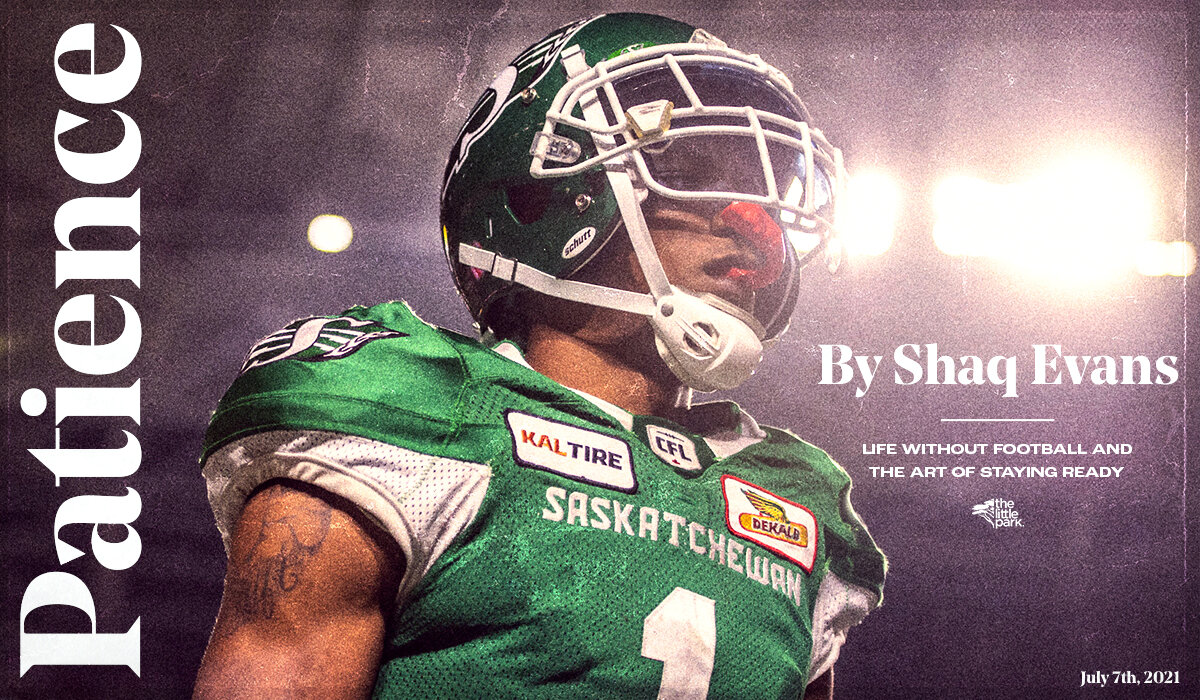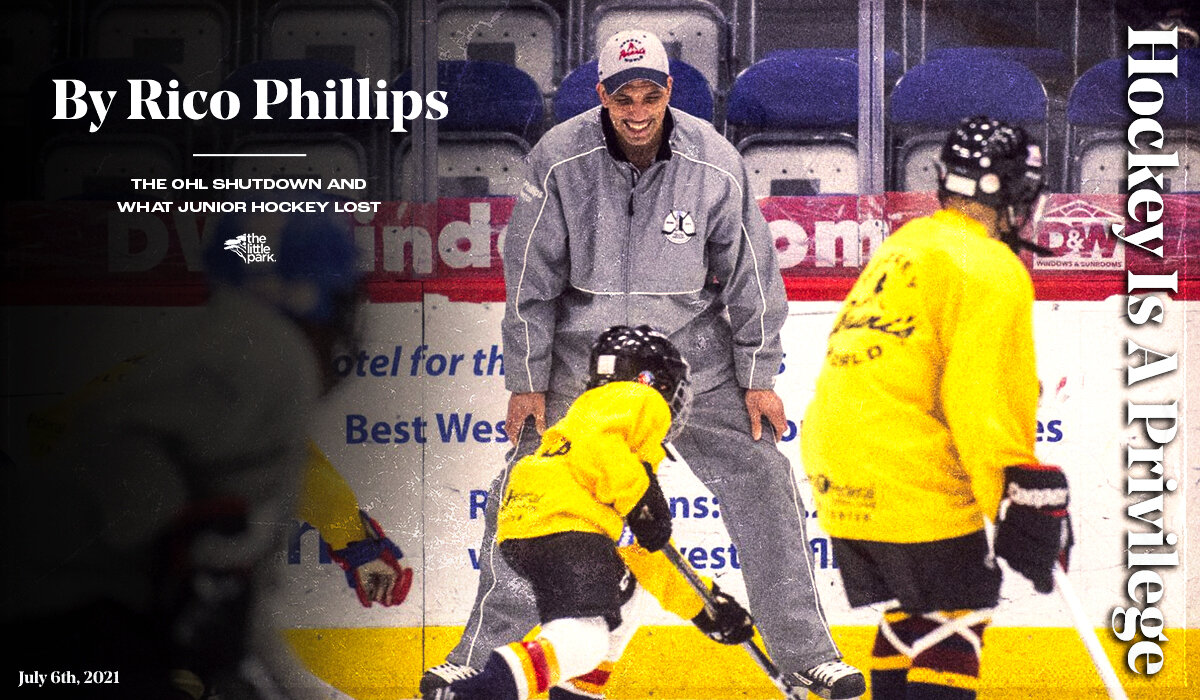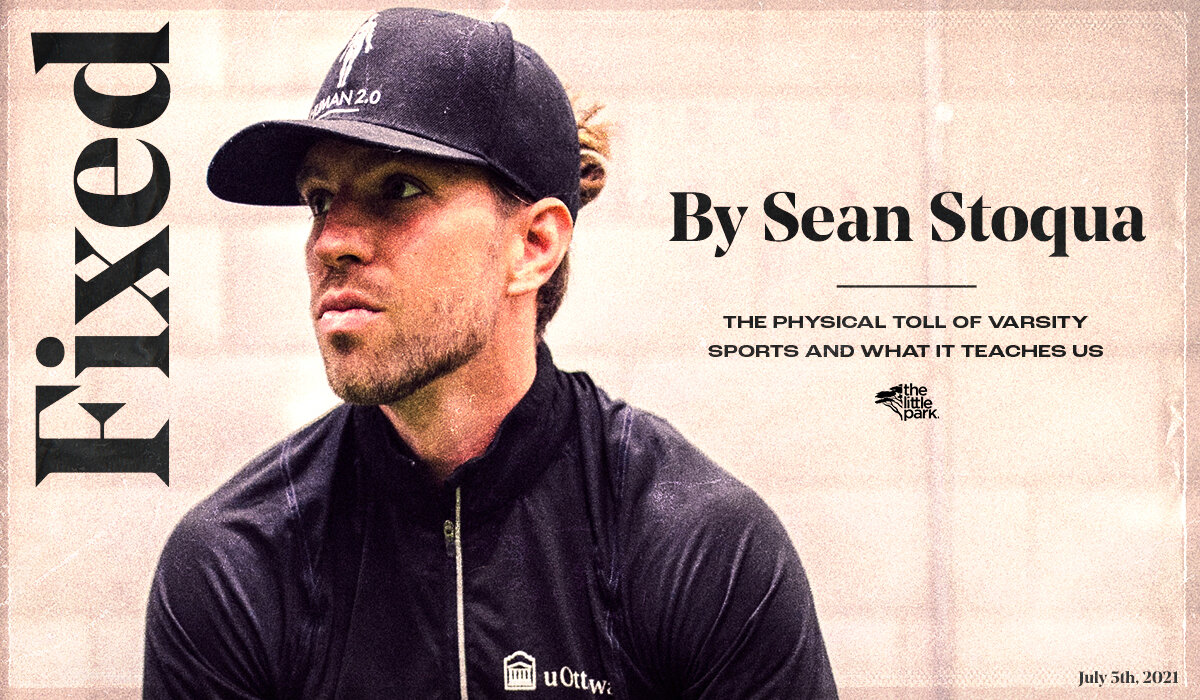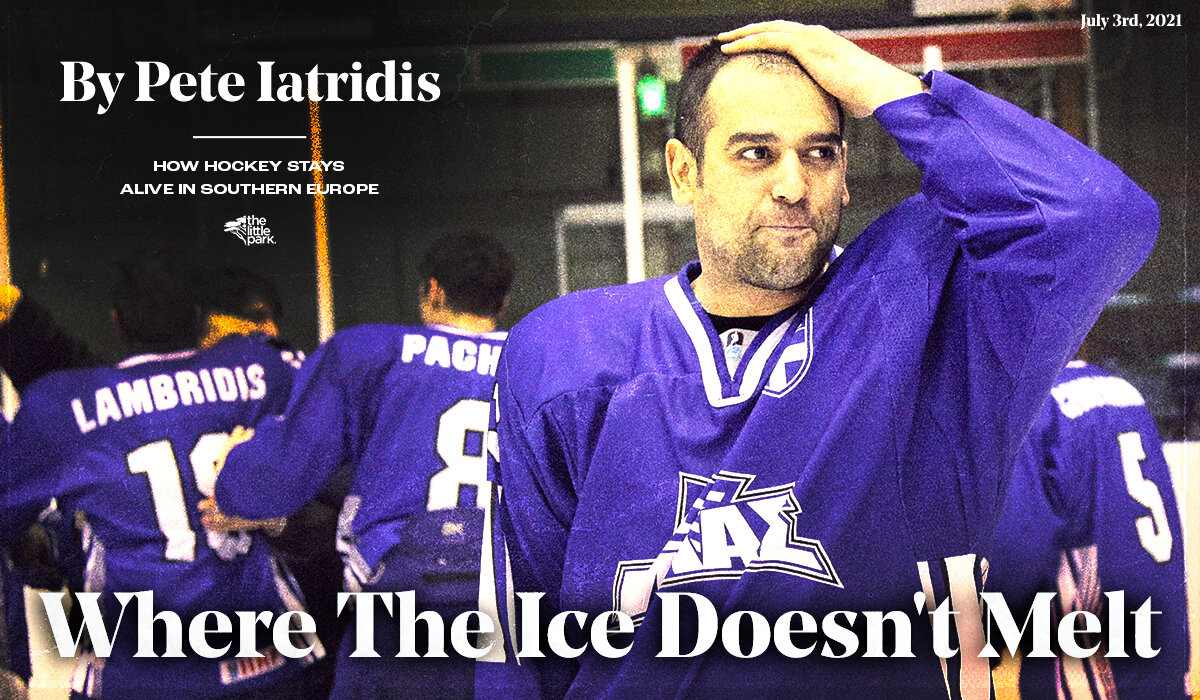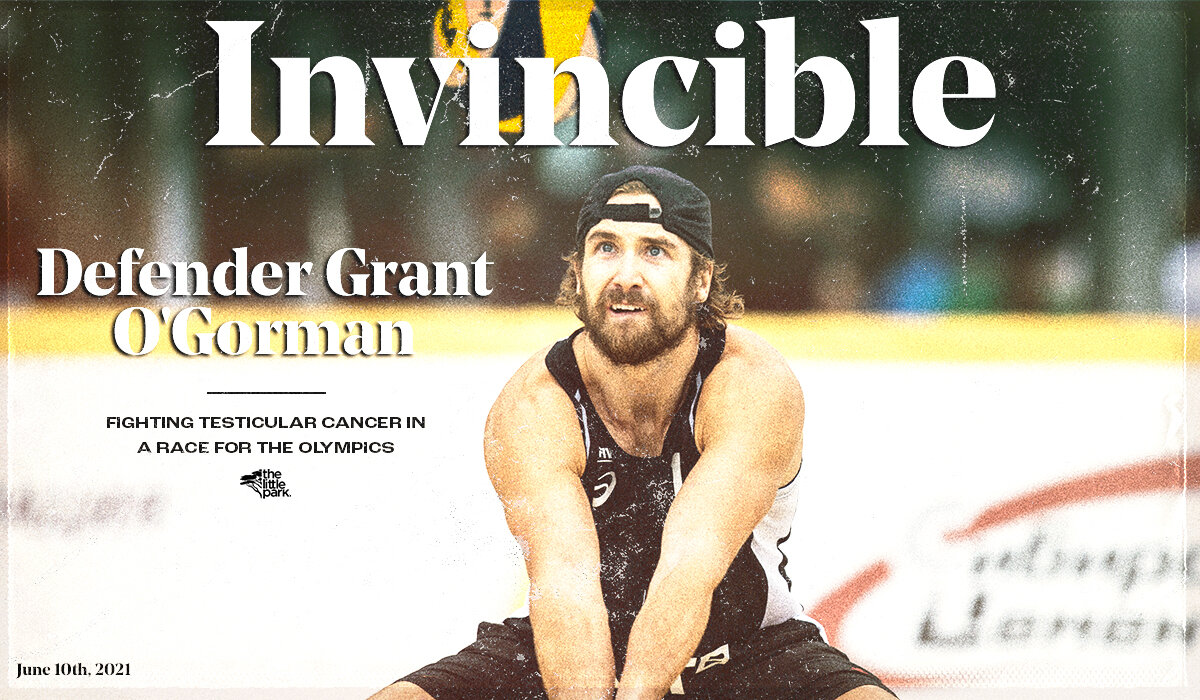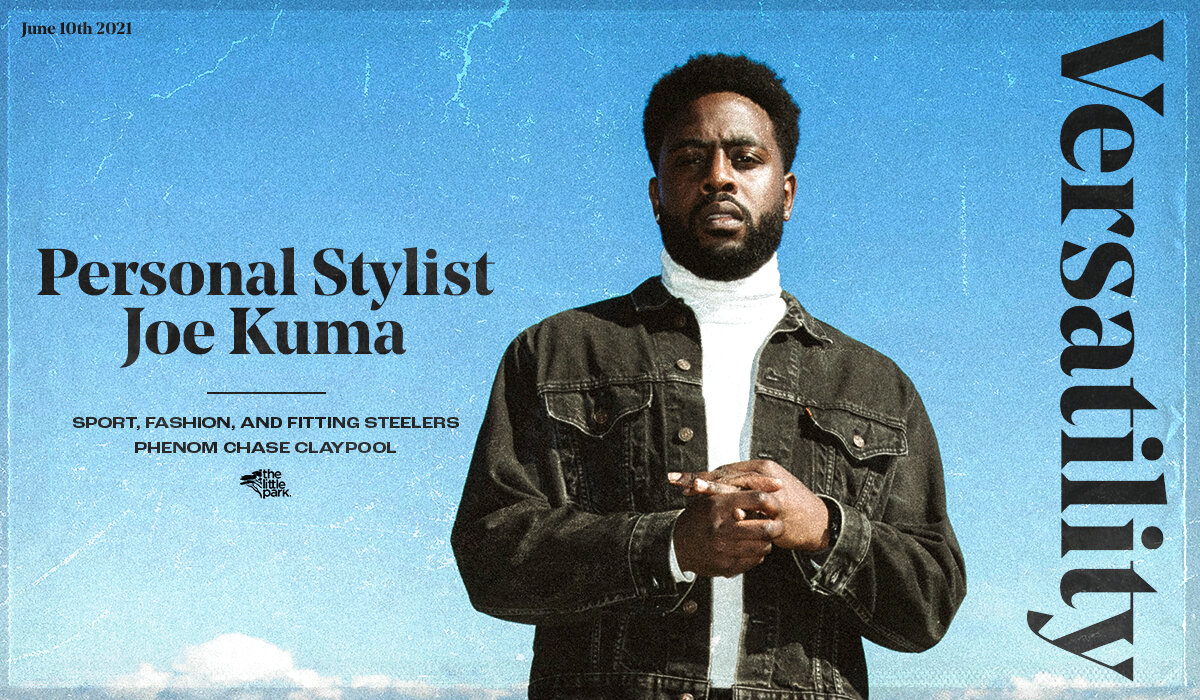I used to feel invincible as a professional volleyball athlete. My body was strong and I felt as though I was in the best shape of my life. And then came a group call with my beach volleyball partner Ben Saxton and our coach at the time, Christian Redmann. I told them I had cancer.
—
Before the pandemic, Ben and I were scheduled to do a two-week training camp in California. We were fully committed to representing Canada at the Tokyo Olympics and, as is required in beach volleyball, we were training obsessively hard – usually four or five days a week. Throughout the process, I tried to stay aware that volleyball wasn’t my entire life. I have family and friends who needed me to be present. But when the lights are on, competition is the priority.
In July of 2019, I started having symptoms.
Doctors were trying to figure out what was wrong with me. I had an enlarged nipple and of particular concern was my hormones were way out of whack. I had tested positive for pregnancy, which was impossible.
My testosterone was extremely high and on several occasions, the doctors asked if I had been taking steroids. Not a fun question for a professional athlete. I wasn’t, so they recommended I get an ultrasound of my testicles.
I quickly learned that I couldn’t just go for an ultrasound. This wasn’t a “walk-in” situation, I would have to set an appointment. At the same time, the nipple wasn’t too bad and didn’t impact my training.
There seemed to be no harm in heading to California first for our scheduled training camp in March. The weather was going to be great and we’d be working alongside some top-notch athletes. There was work that had to be done in preparation for our first event of 2020 in Mexico.
One week into the year and COVID-19 cancelled our event.
Ben and I decided to come back to Canada to weather the storm and stay ready. We were in great shape and remained focused on our Olympic dream.
When we were back, I had a conversation about my symptoms with my fiancé Isabela, who told me “let’s make sure this is OK. Our health comes first.”
I was stubborn and didn’t want to go to any more appointments. But at the same time, I was a professional athlete. I work and train incessantly to stay in peak performance shape and wasn’t going to stop investing in my health.
I scheduled the ultrasound.
When I found out that I had been diagnosed with testicular cancer, I didn’t know how bad it was or how far it had spread. It was a horrible feeling.
When I told Ben and coach Redmann, everyone understood that volleyball was not an option for me over the next little while. I just wanted to survive this.
I had to wait three weeks for the surgery and in order to qualify, I had to test negative for COVID-19. This being at the beginning of the pandemic, no one quite knew how the virus was transmitted and that uncertainty had me staying hyper vigilant and extremely isolated. I saw and spoke to very few people.
It was a hard and sad time -- all I could do was wait. I had lost all motivation for training or volleyball despite knowing I had a 97 per cent survival rate. I had hope, but I also battled spells of depression for those three weeks prior to surgery. Usually, I would pump myself up to push past adversity or doubt. I’d hit the gym. But there was nothing I could have done to prepare me for this.
Leading up to it, doctors examined me daily. I was nervous and had never been in for surgery before, including being unconscious. Here were a bunch of strangers who were preparing to knock me out, take out one of my testicles and I was completely naked on a hospital bed.
“I hope they take the right one out,” I remember thinking.
It was surreal. A testicle is something a lot of people think makes them a “man” because it produces testosterone. Thinking about it now, the manhood bit is a little silly, but at the time, the thought of losing it was difficult.
They cut through my abdomen and pulled the testicle up and out. I lost so much core strength to the point where I couldn’t hold myself up in the shower. I couldn’t sit up in bed. How the hell was I going to spike volleyballs again?
I had to remind myself that I had once doubted if I was going to live. Even just thinking about volleyball wasn’t an option.
Now here I was with a chance to get back into shape and return to the court.
I started doing the little things and eventually started strengthening my core again. Squats and back exercises soon followed. I was back into my regular routine.
In September of 2020, my first real test was an exhibition event in the Netherlands.
It was a surreal scene. Isabela was crying on the sidelines after being with me every step of the recovery journey. Ben, while we were all still in the middle of a pandemic, agreed to travel with me to Europe. I don’t want to speak for him, but it felt like he was there to pick up my spirits just as much as he was there to compete.
I was only a few months removed from surgery and here I was playing against some of the best teams in the world. I was okay and we played well on Day 1. But that first night after, I couldn’t move my body I was so sore. We didn’t play as well on Day 2, but it was just about being there.
That was special enough.
This year, we’ve already played in six tournaments and have earned the right to represent Canada at the Continental Cup, which is the Olympic qualifier in Mexico on June 23. Whether it was before my diagnosis or right now, the goal for Ben and I remains to represent Team Canada in Tokyo.
Although it seems like I have left cancer behind me, the truth is, I am currently under surveillance for five years. I’m still doing blood tests, CT scans, and X-rays to make sure nothing comes back. Recently at a tournament in Mexico, we had been there for just two weeks when I had felt some weird symptoms in my other testicle. I went to the hospital on our day off and was tested once again.
Luckily, nothing showed up, but it demonstrated the mental toll cancer has on me. I don’t let it run my life, but there will always exist a fear that the cancer could come back.
What has helped me is being proactive. Ben and I had always been looking for sponsors for our team, but hadn’t received much funding in the past. I decided to take a chance and support something that I cared about and teamed up with “Movember” after a simple message on Instagram. Now, we’re using our semi-famous brand as athletes to raise awareness for prostate and testicular cancer. I hope to pass along the lessons that I have learned as they may get someone through a dark time or even save a life.
Today, I make a serious effort to get checked anytime I feel something. I take precautions more often than I had before. My advice is to check yourself every month. If you notice a change in size, shape, or feeling…go see a doctor.
I no longer feel invincible and recognize that my body and my mind can be vulnerable to something. That, for me, has been the greatest lesson of all.







